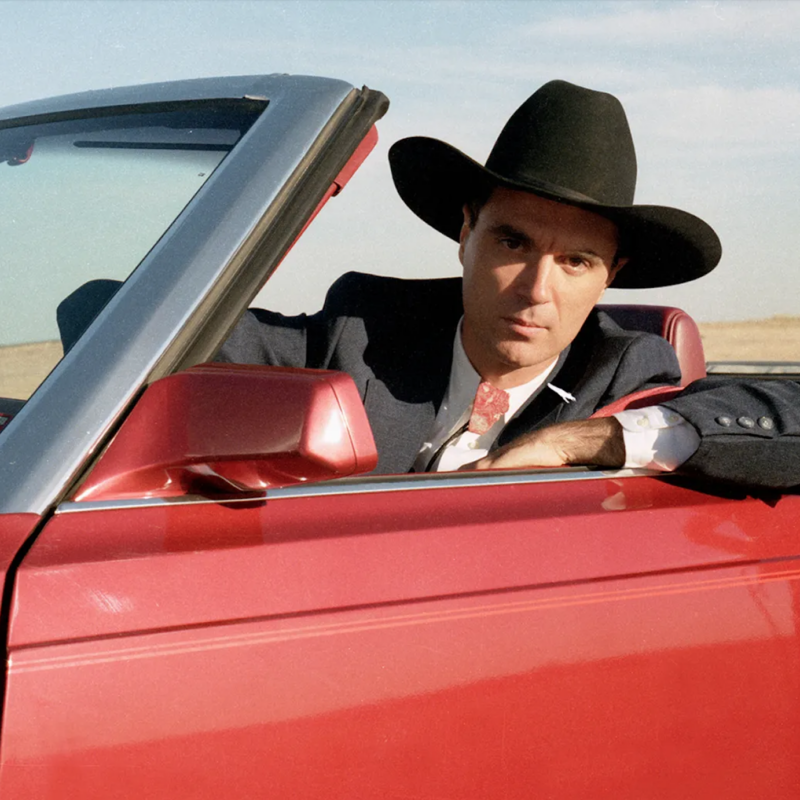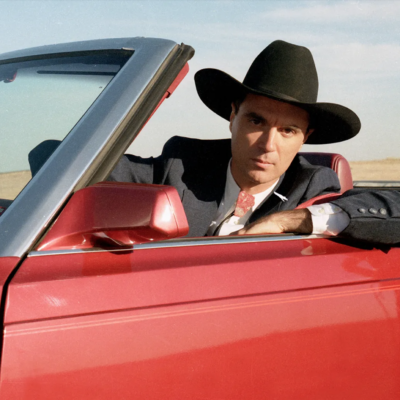In 1989, Joel Jones worked for Crutchfield electronics company and lived with John Quinn, then the resident director of a new local drama troupe called Offstage Theatre. The topography of the theater scene was entirely different then; there were no Romeo roadtrips to Staunton to catch Shakespeare at the Blackfriars Playhouse (which opened nearly 10 years later) and there was no Play On! Theatre at the Frank Ix Building, which was still a textile factory under the name Ix & Sons. Fran Sackett (now Smith), the founding artistic director of Live Arts, still ran “coffeehouse” shows in local java joints, a handful a year or so.
 Ian Lawler (left), Gabrielle Moskey and Das Defino are three of the many actors participating in an all-Joel Jones Barhoppers. |
Offstage, founded by UVA drama professor Doug Grissom and playwrights Mark Serrill and Tom Coash, ran the game, with an average of five shows or so a year by Jones’ estimation. The gigs went up at venues around town, restaurants and bars, wherever and whenever space and time permitted, first with a production entitled Chug, performed at Miller’s. Quinn directed Krapp’s Last Tape, a one-act by Samuel Beckett in which a 69-year-old man records his thoughts on the past year on his birthday, as he does each previous year. He tapes, stops, listens to older (by which your narrator, Curtain Calls, means younger) versions of himself, eats a handful of bananas (don’t ask) and, hidden in the darkness to the side of the stage, uncorks a few bottles and drinks.
It is interesting, then, that Jones’ first role in Offstage was as sound director for Krapp’s Last Tape, cueing the noise of corks popping and liquid pouring from a bottle of some kind. He’d already seen the first Barhoppers production (plays about and performed in drinkeries, an idea Jones credits to Coash) and, after a little prompting from Grissom and Coash, began writing one-acts and shows.
“I’d seen Second City [the Chicago-based improv comedy troupe] and really liked that,” says Jones. “[And] John and Tom were both very good about getting people to write shows.”
But an output like Jones’, like some grand unspooling of tape, was almost unprecedented. “I had, like, 10 15-minute plays or skits produced in the first year [1991] I was writing,” he says. Six pieces were performed by Offstage, four skits made the stage during two Live Arts productions, and Jones was hooked.
Now, Barhoppers is a reliable yearly tradition each spring among local bars (including Miller’s, where it returns this year after a lengthy absence), and has popped up occasionally in New York, where Jones currently lives; the show runs Sunday through Tuesday for the next three weeks at 7pm (March 9-11 at Miller’s, March 16-18 and 23-25 at Rapture). And, in honor of Barhoppers’ 20th anniversary, Offstage has planned an all-Jones retrospective, with pieces dating back to the earliest years of his playwriting. Every Other Weekend, which sports one of the largest Barhoppers casts, dates to 1991, a piece that Jones describes as a “black comedy” about divorcees (played by Brad Presley and Katie Gentry) that meet in a bar to discuss custody of their son (Scott Keith, who flexed his acting muscles fantastically in The Violet Hour and his regular muscles in Web at Live Arts this year).
Offstage plans six plays for this year’s Barhoppers. American Buffalo director Mark Valahovic stars alongside Heritage Repertory’s assistant business manager, James Scales, in Life Insurance/The Crossing; Valahovic’s young Buffalo star, Philip Green, appears in Automatic Writing. The cast of players in this collection of plays is so comprehensive that Curt feels he can link any of them together, which makes him feel like some watering hole regular: Sarah Oppenheimer, director of Every Other Weekend, appeared in Jones’ Regatta Club Freud (not being performed this year) with Bob Dorsey, who directs Big Fish, Little Fish, which features Don Gaylord, who acted opposite Mark Valahovic in Live Arts’ A Streetcar Named Desire.
Though Jones presides over the actors and directors as a sort of grand conductor, he has remained relatively detached from this year’s Barhoppers. He is working on a full-length play called Miraculus, which he workshopped during the Hamner Theater’s 2007 Playwrights Conference and hopes to stage at Hanover College in Indiana next year.
“I’ve got some new bar plays,” he says. “[But] I don’t want to die with 100 bar plays and nothing else.”
Close the tab, barkeep.
Intermezzo
CC heard a little rumor recently that Ash Lawn Opera, which celebrates its 30th anniversary this year, had an interest in playing a comprimario (translated, secondary role) in plans for the Jefferson Theater, perhaps looking for a new place to call home. He paid a call to director Judith Walker, who declined to comment and reminded Curt that the festival has “a permanent home right now at Ash Lawn-Highland.” CC will keep his eyes and ears attuned, folks; a column-laden building like the Jefferson deserves a little operatic majesty, agreed?
You might not know that Curt’s middle name is “Courtesy” (hidden for reasons of embarrassing redundancy; it wasn’t easy growing up “Curt Court Calls”), and he felt it improper to call Walker without getting the skinny on the 30th season of the opera fest. Ash Lawn Opera received a Prana grant from the Charlottesville Area Community Foundation (a fund established to bring arts to low-income kids) in the amount of $25,000 to stage Noye’s Fludde (Noah’s Flood), a production planned for March that was bumped back to October, and Walker says that the current incarnation of the play features roughly 80 kids culled from local schools and the Boys and Girls Club.
What’s more, Ash Lawn Opera will take to the schools in April with professional singers and an accompanist to give students an easy understanding of opera. Walker says that she prefers to liken opera to athletics to help give students an understanding, and takes a runner as an example: “A runner needs to warm up, know how to breathe.”
Consider Curt breaking out his sweats for the upcoming opera season and whatever hurdles it might toss his way; he’ll keep you posted.
SWAG Bag
Curt nabbed a copy of UVA alum Jennifer Chang’s The History of Anonymity, one of the books in the inaugural Virginia Quarterly Review Poetry Series, which is being published, oddly, by the University of Georgia Press. Beautiful book, and one of four to be released around the time of the VQR Poetry Series reading at the Virginia Festival of the Book.
And well-timed, too, because Curt has been in the mood for concise thoughts, prose and poems recently. Anybody catch The New Yorker’s piece on Smith Magazine’s six-word memoir collection, Not Quite What I Was Planning?
Turns out, you can submit your own six-word memoirs at smithmag.net. Curt has one to send in: “More Art than Garfunkel. Bring it.”
Got any arts news? Want Curt to publish your six-word memoir? E-mail curtain@c-ville.com.





